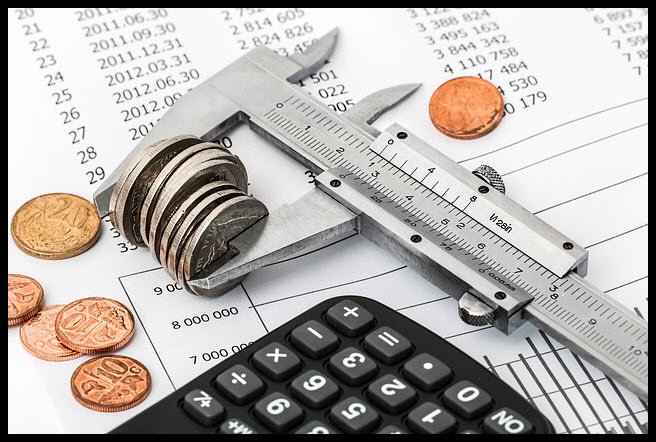When it comes to the appraisal process, one of the biggest concerns for businesses and organizations is the cost involved. Appraisals are an integral part of decision-making and strategic planning processes, but they can also be a significant expense. In fact, according to a survey by the American Society of Appraisers, 65% of organizations reported spending more than $50,000 on appraisal costs per year. This high cost can create a burden for companies, especially smaller ones with limited resources. However, understanding appraisal costs and implementing effective strategies for managing them can lead to significant cost savings and increased return on investment (ROI). In this blog post, we will delve into the world of appraisal cost analysis and explore ways to optimize these costs for better business outcomes.
Understanding Appraisal Costs and Their Impact

Before we dive into cost-saving strategies, it is essential to understand what appraisal costs entail and how they impact an organization’s finances. Appraisal costs refer to the expenses associated with conducting appraisals, which include the fees paid to the appraiser, travel costs, and other related expenses. These costs can vary depending on the type of appraisal being conducted, the complexity of the subject matter, and the level of detail required.
One of the main reasons appraisal costs have been increasing in recent years is the growing complexity of businesses and the need for more intricate and detailed appraisals. With the rise of technology and global markets, the assets and liabilities of companies have become more complex, requiring specialized knowledge and skills from appraisers. Additionally, the changing regulatory landscape has also contributed to the increase in appraisal costs. Compliance requirements set by institutions such as the Financial Accounting Standards Board (FASB) and the International Financial Reporting Standards (IFRS) have made appraisals more extensive and time-consuming.
The impact of appraisal costs goes beyond just the financial burden. Appraisals are crucial for making informed decisions and mitigating risks, and a subpar appraisal can have severe consequences. A poorly conducted appraisal can result in inaccurate valuations, which may lead to over or undervaluing of assets. This can potentially impact the company’s financial statements and even lead to legal disputes. Therefore, it is critical to manage appraisal costs effectively without compromising on the quality and accuracy of the appraisals.
Effective Strategies for Managing Appraisal Costs
Now that we have explored the importance and impact of appraisal costs let us look at some strategies for effectively managing these expenses.
Conduct a Cost-Benefit Analysis
Before conducting any appraisal, it is essential to assess whether the benefits outweigh the costs. A cost-benefit analysis can help determine if an appraisal is necessary and whether the potential benefits justify the expense. This analysis should take into consideration factors such as the purpose of the appraisal, the type of asset being appraised, and the expected outcomes. If the projected benefits are not significant enough to offset the costs, companies may consider alternative methods, such as market research or internal valuations.
Prioritize Appraisals Based on Risk
Not all assets require the same level of appraisal, and conducting detailed appraisals for low-risk assets can drive up costs unnecessarily. A risk-based approach to appraisals can help prioritize which assets require more thorough evaluations and which ones can be appraised through simpler and less costly methods. This approach involves assessing the potential impact of the asset on the organization’s financials and prioritizing appraisals accordingly. High-risk assets such as land, equipment, and intangible assets should undergo detailed appraisals, while low-risk assets like furniture and fixtures can be appraised using more straightforward methods.
Explore Alternative Valuation Methods
Traditional valuation methods, such as the Cost Approach, Income Approach, and Market Approach, can be time-consuming and costly. Exploring alternative valuation methods can help reduce appraisal costs significantly. For instance, the Mass Appraisal method can be used for assets with similar characteristics, such as real estate properties, reducing the time and effort required for individual appraisals. The use of technology, such as Automated Valuation Models (AVMs), can also speed up the appraisal process and provide more accurate valuations.
Streamline Workflow Processes
One of the most significant contributors to appraisal costs is the time and effort involved in conducting them. Streamlining workflow processes can help reduce the time taken to complete appraisals, resulting in cost savings. This can be achieved through the use of technology, such as appraisal management software, which automates various tasks and standardizes processes. Additionally, having a well-defined scope of work and clear communication with appraisers can minimize delays and ensure timely completion of appraisals.
The Role of Technology in Streamlining Appraisal Processes

As mentioned earlier, technology plays a crucial role in streamlining appraisal processes and reducing costs. Let us explore some ways in which technology can be utilized to optimize appraisal costs.
Appraisal Management Software
Appraisal management software streamlines the appraisal process by automating various tasks such as scheduling, data collection, and report generation. These tools also provide a centralized platform for communication between all stakeholders involved in the appraisal process, ensuring efficient collaboration and minimizing delays.
Automated Valuation Models (AVMs)
AVMs are computer programs that use algorithms to estimate the value of an asset. They can be used for mass appraisals of real estate properties, eliminating the need for manual inspections and on-site visits. AVMs provide quick and accurate valuations, making them a cost-effective alternative to traditional valuation methods.
Cloud-based Solutions
Cloud-based solutions offer numerous benefits for appraisal processes, including cost reduction. By storing data and documents in the cloud, organizations can save on physical storage costs and minimize time spent on organizing and retrieving documents. Cloud-based solutions also offer better security and accessibility, making the appraisal process more efficient.
Best Practices for Appraisal Cost Reduction

In addition to implementing cost-saving strategies and leveraging technology, there are several best practices that organizations can follow to optimize appraisal costs.
Conduct Periodic Reviews of Appraisers
Periodic reviews of appraisers can help ensure that they are meeting industry standards and following best practices. This review process should assess their qualifications, experience, accuracy of valuations, and turnaround time. By conducting these reviews, companies can identify appraisers who provide high-quality services at competitive prices and build long-term relationships with them.
Establish Clear Communication and Expectations
Establishing clear communication and expectations with the appraiser from the start can help avoid misunderstandings, delays, and extra costs. Companies should provide a detailed scope of work, including deadlines, expected outcomes, and any specific requirements. Additionally, keeping an open line of communication throughout the appraisal process can help address any issues promptly and ensure timely completion of appraisals.
Leverage Industry Knowledge and Benchmarking
Keeping up-to-date with industry trends and benchmarking against other companies in the same sector can help organizations determine if they are overspending on appraisals. Industry associations and professional bodies often conduct surveys and publish reports on average appraisal costs, providing valuable insights for comparison and cost-benefit analysis.
Valuing Accuracy and Timeliness in Appraisal
While controlling costs is crucial, it should not come at the expense of accuracy and timeliness. Inaccurate appraisals can lead to incorrect financial reporting and impact decision-making processes, while delays can result in added expenses and missed opportunities. Therefore, organizations must prioritize accuracy and timeliness when managing appraisal costs.
Invest in Training and Professional Development
One way to ensure accuracy in appraisals is by investing in training and professional development for appraisal teams. As mentioned earlier, the complexity of assets and changing regulatory requirements have made appraisals more challenging, requiring specialized skills and knowledge. By providing training and professional development opportunities, companies can equip their appraisal teams with the necessary expertise to conduct accurate valuations.
Monitor Turnaround Time and Quality
Monitoring the turnaround time and quality of appraisals can help identify areas for improvement and ensure timely completion. Companies can track turnaround time by setting realistic deadlines and assessing if they are being met. Quality can be monitored through periodic reviews and evaluations of appraiser performance.
Establish a Contingency Plan
Despite all efforts, delays and unexpected issues may arise during the appraisal process. Having a contingency plan in place can help mitigate risks and minimize the impact on costs. This plan should outline measures to take in case of unforeseen events, such as changes in market conditions or unavailability of an appraiser.
Optimizing Appraisal Costs for Enhanced ROI
When done right, managing appraisal costs can lead to significant cost savings and enhanced return on investment. Here are some ways organizations can optimize appraisal costs for better financial outcomes.
Build Strong Relationships with Appraisers
Establishing long-term relationships with reliable and competent appraisers can provide numerous benefits. These relationships can help negotiate better rates, ensure timely completion of appraisals, and minimize the need for rework. Additionally, working with the same appraiser over multiple appraisals also increases their understanding of the company’s operations, resulting in more accurate valuations.
Implement Internal Valuation Processes
While third-party appraisals are essential for many assets, there may be instances where internal valuation processes can be utilized. For example, if the company has in-house experts with the necessary expertise, they can conduct appraisals for certain assets, reducing the need for outsourcing and associated costs.
Create a Culture of Cost-Consciousness
Instilling a culture of cost-consciousness in the organization can also contribute to cost savings. By involving employees at all levels in the appraisal process and educating them on its importance and impact, companies can encourage them to take a more cost-conscious approach.
Innovative Approaches to Appraisal Cost Control
In addition to traditional methods, there are several innovative approaches that organizations can explore to control appraisal costs further.
Crowdsourcing
Many companies have successfully utilized crowdsourcing as a cost-effective alternative for conducting appraisals. Crowdsourcing involves outsourcing work to a large group of people, usually through an open call on social media or other platforms. This method has been used for mass appraisals, such as valuations of real estate properties, resulting in significant cost savings.
Virtual Reality Technology
Virtual reality technology has been gaining traction in various industries, including appraisal. By replicating physical assets in a virtual environment, appraisers can conduct inspections and appraisals without having to visit the property physically. This method reduces travel costs and speeds up the appraisal process.
Benchmarking and Industry Trends in Appraisal Costs
To get a better understanding of appraisal costs and identify areas for improvement, it is essential to benchmark against industry trends and best practices. The table below provides average appraisal costs for various types of assets, according to a survey by the American Society of Appraisers conducted in 2021.
| Asset Type | Average Appraisal Cost |
|---|---|
| Real Estate | $5,000 – $25,000 |
| Machinery & Equipment | $2,500 – $10,000 |
| Intangible Assets | $5,000 – $20,000 |
| Business Valuation | $15,000 – $50,000 |
As evident from the table, appraisal costs can vary significantly depending on the type of asset being appraised. Companies should use this information to benchmark their appraisal costs and identify opportunities for cost reduction.
Future Outlook and Emerging Trends in Appraisal Cost Management
As technology continues to evolve, we can expect to see more innovative ways of managing appraisal costs in the future. The adoption of artificial intelligence and machine learning in appraisal processes is gaining momentum, promising increased accuracy and efficiency. Additionally, with the rise of remote work and virtual technologies, we may see a shift towards virtual appraisals, leading to further cost savings.
Conclusion
In conclusion, appraisal costs are a significant concern for organizations, but they are not without solutions. By implementing effective strategies for managing costs, leveraging technology, and following best practices, companies can minimize expenses without compromising on accuracy and timeliness. As we move towards a more digitized world, we can expect to see more innovative approaches to appraisal cost management, providing businesses with even more opportunities for cost optimization. By valuing accuracy and timeliness in appraisals and optimizing costs, organizations can make informed decisions and maximize their return on investment.
Also visit for more blogs at : Merchandise and Retail Management



